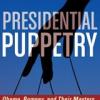

| Online: | |
| Visits: | |
| Stories: |

| Story Views | |
| Now: | |
| Last Hour: | |
| Last 24 Hours: | |
| Total: | |
Presidential Candidates, Media Duck Tough War/Peace Issues
With the presidential debates scheduled to resume Jan. 14 after holiday recess, voters are running out of chances to hear sustained discussion of the most difficult foreign policy issues before the first voter selections.
So far, candidates have almost entirely avoided meaningful comment, particularly before the smaller and more interactive audiences in Iowa and New Hampshire that create more candid exchanges, about some of the hardest war-related choices the next administration will face. When campaigns move to larger states candidates have far less hazard of encountering tough questions from unvetted sources.
Three examples below show the problem, including dangerous shared assumptions between candidates, the mainstream media, and the major corporations that control them both.
 On CNN’s “State of the Nation” Sunday interview show, for example, substitute host Dana Bash (shown at left) questioned GOP candidate Carly Fiorina Jan. 3 about her Middle Eastern foreign policy.
On CNN’s “State of the Nation” Sunday interview show, for example, substitute host Dana Bash (shown at left) questioned GOP candidate Carly Fiorina Jan. 3 about her Middle Eastern foreign policy.
Bash asked Fiorina about Saudi Arabia’s execution of a Shia cleric, thus antagonizing Iran and leading to severed relations before scheduled peace talks later this month. Fiorina’s extended response included the following, according to a CNN transcript:
“….when Russia and Iran combine together in an unholy alliance, we cannot, as, for example, Donald Trump suggests, outsource leadership, our leadership in the Middle East, to Russia or to Iran. They’re not our allies. They are our adversaries.”
Fiorina, a former high-tech CEO who led the CIA’s external advisory board from 2007 to 2009, repeated several times her language about “allies” and “adversaries.”
But she failed to describe what shared interests should constitute on alliance or what the United States should do about actions by “allies” that undercut this country’s announced foreign policies on, for example, thwarting terrorism.
Saudi Arabia, for example, funded accused 9/11 hijackers according to widespread reports, and is heavily implicated along with U.S. ally Turkey in enabling the ISIS/ISIL terrorists based in Syria and Iraq.
The exchange on CNN typified other vapid interviews there and elsewhere sidestepping vital topics apparently too sensitive for in-depth treatment.
Source: http://www.justice-integrity.org/faq/966-presidential-candidates-media-duck-tough-war-peace-issues


